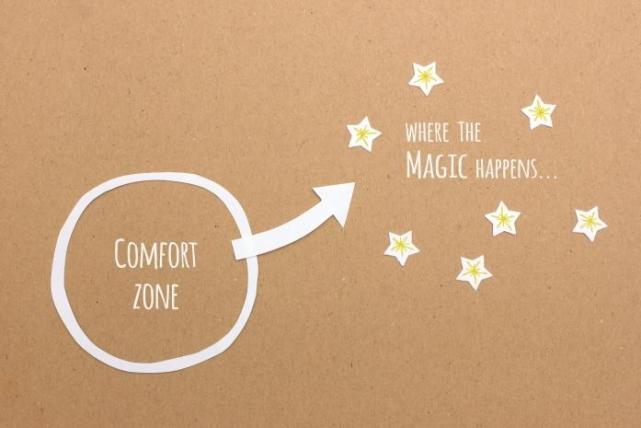
People have a comfort zone in which they prefer to operate. They may occasionally venture outside the boundary of their comfort zone, but typically only for brief periods.
Acting in a manner different than what your comfort zone dictates may give rise to a realm of uncomfortable feelings like fear, doubt, anxiety, and even guilt. There’s an emotional security of sorts to operating within your comfort zone, even if so doing yields less than optimum outcomes.
There’s a big potential problem with comfort zones, though. In the sales arena (and most other arenas, as well), growth is a function of one’s ability to recognize and accept the changing nature of the environment and the willingness to adapt by taking appropriate action. In other words, if your environment is changing and you don’t change with it, you’ll get left behind. Sometimes we need to challenge ourselves and make a conscious effort to move beyond our comfort zone if we expect to thrive in a new situation. And that’s just as true for organizations as it is for people.
It’s always appropriate for company owners, C-suite executives, and other leaders to ask: Where are our organizational comfort zones … and which ones do we need to move beyond? Consider doing a fearless inventory of the past few months. As part of that inventory, you and your team may want to explore the following questions:
- What has worked best for us over the past few months? (Identify three specific initiatives.)
- What has not worked out as well for us? (Again, focus on three specific areas.)
- What do our best clients/customers have to say about where there is room for improvement in our organization? (If we don’t know, how could we find out?)
- What is our competition initiating or about to initiate that we’re not presently doing? (Again, if we’re not sure, how could we find out?)
- What short-term goals should we adopt?
- What longer-term goals should we consider adopting?
Spending some time as a group on questions like this, and following through appropriately on the best answers, is a great exercise. You can use these questions to identify specific aspects of your organizational comfort zone that need challenging.
Stepping onto a brand-new path can be difficult, and it can bring about all kinds of strong emotional responses – but in the long term it’s better than remaining in a situation that’s familiar, but not moving you quickly enough toward your most important organizational goals.
Check out this video to learn how to be a comfort zone buster!
Learn how to improve your sales process and close more deals. Get your FREE report today >>

